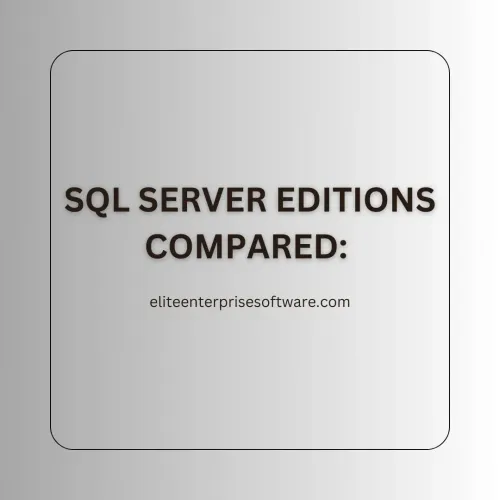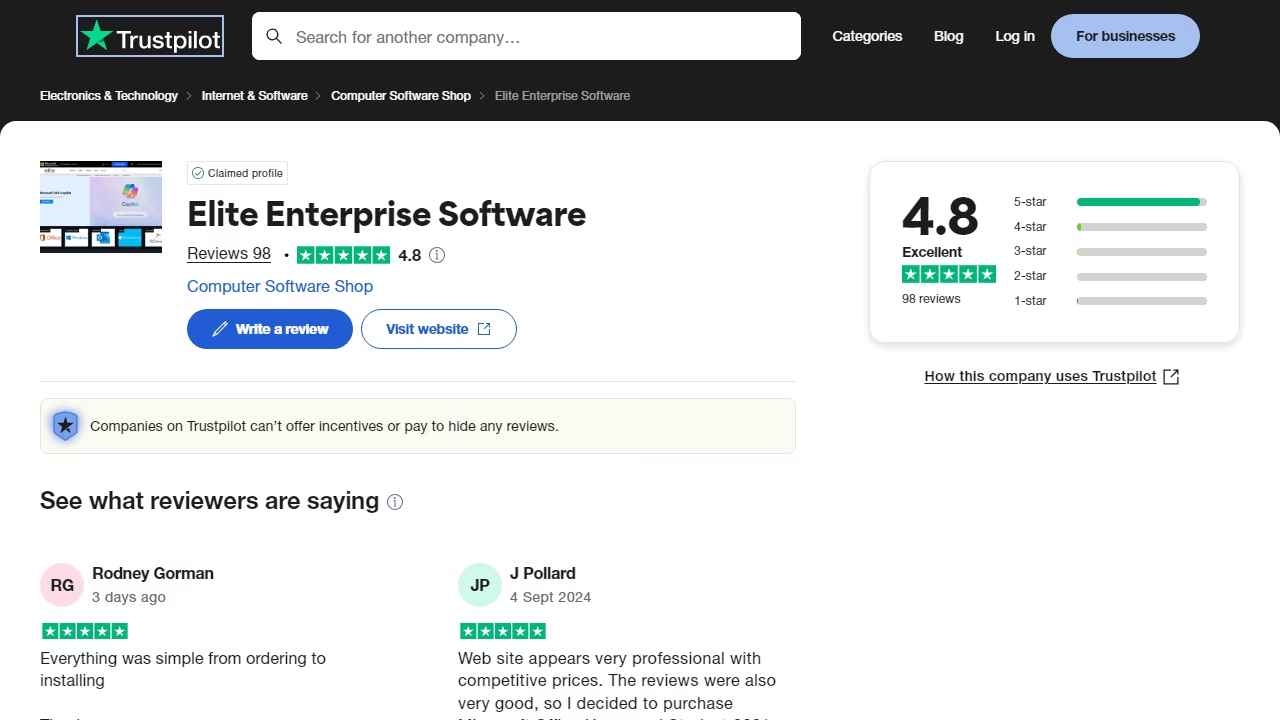SQL Server Editions Compared: Standard vs. Enterprise

SQL Server Standard Edition: Serves as a reliable foundation for data management, making it an excellent choice for smaller organizations and departments with moderate data storage needs. It excels in core database functionalities, providing a dependable platform for storing, retrieving, and manipulating data.
With built-in backup and recovery features, Standard Edition supports comprehensive backup strategies to protect against unexpected events like hardware failures or data corruption. In the event of data loss, its recovery capabilities enable swift database restoration, minimizing downtime and ensuring business continuity.
However, it’s important to be aware of Standard Edition’s limitations. For example, its usable RAM is typically capped at 128GB, which may pose challenges for organizations managing rapidly growing datasets or running memory-intensive workloads. Additionally, it lacks support for certain advanced virtualization features, which can affect resource utilization and server flexibility.
As your business expands and your data requirements increase, these limitations might hinder your ability to optimize your data for effective decision-making and business strategies. In such cases, a rapid application development platform like Five can be invaluable, enabling you to build interactive web applications on your SQL Server database, regardless of the edition in use.
SQL Server Enterprise Edition: is the perfect choice for businesses and organizations handling large volumes of data and high-performance workloads. It delivers exceptional performance, scalability, and advanced features, making it well-suited for complex data analysis.
A standout advantage of Enterprise Edition is its ability to scale with your growing data needs. It accommodates increasing data volumes without compromising performance, eliminating concerns about bottlenecks or memory limitations. This scalability ensures your database infrastructure evolves alongside your business.
Enterprise Edition also excels in high availability and disaster recovery with AlwaysOn Availability Groups. By restaging databases across multiple servers, even in geographically diverse locations, it ensures minimal downtime and robust business continuity during unexpected outages or disasters.
For real-time data analysis, the In-Memory OLAP feature provides remarkable speed by storing frequently accessed data in RAM. This results in rapid query performance and instant insights for complex analytical tasks, enhancing business intelligence and enabling swift, data-driven decisions.
Additionally, Enterprise Edition offers advanced virtualization capabilities, optimizing resource utilization and server flexibility. It integrates seamlessly with platforms like Hyper-V, allowing efficient deployment and management of multiple SQL Server instances on a single server. This support helps streamline IT infrastructure, reduce costs, and maintain high performance.
Choosing Between Standard and Enterprise Editions
After exploring the strengths of both SQL Server editions, let’s simplify the decision-making process to identify the ideal fit for your organization. Apply the following framework as a reference:
Factors to Consider
Data Volume and Growth
Standard Edition: Suitable for smaller to moderate datasets.
Enterprise Edition: Ideal for managing massive datasets or environments with anticipated significant data growth, thanks to its enhanced scalability.
Performance Requirements
Standard Edition: Provides basic performance capabilities for standard workloads.
Enterprise Edition: Essential for complex data analysis, real-time insights, or high-performance workloads with features like In-Memory OLAP.
High Availability and Disaster Recovery
Standard Edition: Limited disaster recovery options.
Security Needs
Enterprise Edition: Enhances security with advanced auditing features, providing a more robust protection framework.
Budget Constraints
Standard Edition: A cost-effective option for smaller organizations or projects.
Enterprise Edition: It justifies its higher licensing costs with a rich feature set and support for larger user concurrency, which is suitable for high-demand environments.
By aligning your organizational needs with these factors, you can make an informed decision that balances functionality, scalability, and cost-effectiveness.
Is SQL Server Enterprise Edition notably more advanced than the Standard Edition?
When deciding between SQL Server Enterprise and Standard Editions, several factors need to be weighed.
What People Say
SQL Server Standard Edition is significantly more affordable and offers robust capabilities that meet the needs of many businesses. However, Enterprise Edition is indispensable for organizations requiring advanced features.
Key differentiators include:
Distributed Availability Groups: Enterprise supports this feature, which is essential for high-availability setups spanning multiple databases and more than two replicas.
Performance Enhancements: Enterprise Edition provides exclusive functionalities such as online index rebuilds, automatic tuning with Query Store, and batch mode operations, effectiveness.
Usage Trends
Many organizations choose Standard Edition by default, especially when its feature set is sufficient for their needs. Some organizations have switched from Enterprise to Standard, as many features once exclusive to the Enterprise Edition are now accessible in the Standard Edition.
However, for companies requiring:
Extensive high-availability solutions,
Real-time data analysis, or
Support for large-scale environments with high RAM and CPU demands,
Enterprise Edition’s advanced capabilities make its higher cost worthwhile.
Conclusion: SQL Server Standard vs. Enterprise
SQL Server Standard Edition offers a strong foundation for smaller businesses and departments with basic data management needs. On the other hand, SQL Server 2022 Enterprise Edition provides unmatched scalability, advanced features, and robust disaster recovery capabilities, making it ideal for large enterprises that handle massive data volumes and complex workloads.
However, if you're looking for a modern and efficient way to build data-driven web applications on top of your SQL Server database, is the perfect solution. Five is a rapid application development platform that enables you to quickly create interactive and visually appealing web applications, all without the complexities and limitations of traditional database management systems.
When considering the SQL Server 2022 Enterprise Core 2 Core License Price, it's important to evaluate whether the advanced features of Enterprise Edition align with the interests of your company

